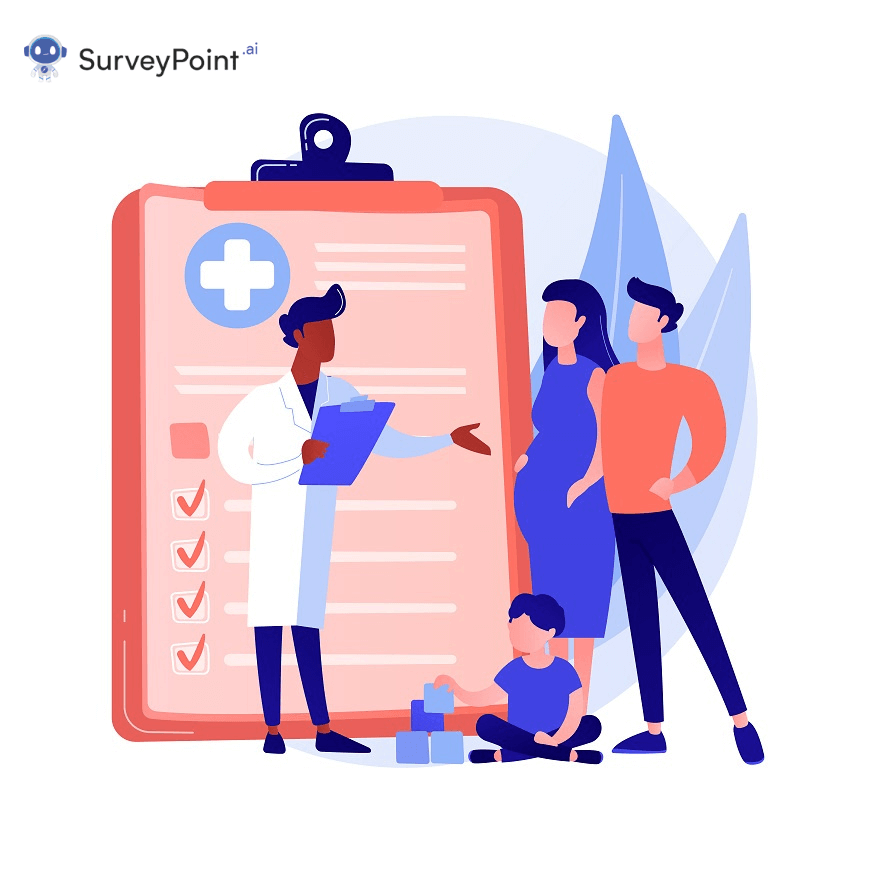
The healthcare sector is a $395 billion market, and one of its mainstays is health surveys. A healthy life is one of the primary necessities of humans. The world’s economy is expected to improve in the future, resulting in more and more people taking advantage of its services. Naturally, with so much load infused, the chances of errors will also increase.
That’s one of the reasons why leaders worldwide prioritize the seamless hospital facility to tackle any type of health impediment without any inconvenience.
Customers carry an awful impression if, during an emergency such as health hazards, they face poor infrastructure that cannot help to soothe their pain points.
In this customer-centric healthcare world, it is one of the major red flags to fail to cater emergency needs of patients. Eventually, a healthcare survey was developed to make hospital operations more seamless and ready for emergencies.
Why was the Healthcare Survey Introduced?
Insufficient healthcare is a common but flawed practice in the market. Patient perspectives are gathered through health surveys so services that fall below minimum standards can be improved. It serves as a blueprint of the patient’s request to healthcare professionals before execution.
Health professionals and medical institutions can lose their trust when patients have negative healthcare experiences. Healthcare professionals and hospitals can utilize health surveys to identify areas of improvement beyond medical care relevant to patient care.
Healthcare providers can learn a great deal about what factors affect patients’ satisfaction by asking about their experiences outside the hospital’s medical sphere. As a result, they can fine-tune their services and improve patient outcomes and experiences.
A better understanding of health habits and practices prevalent in a region helps in designing an effective health plan. Here’s what the healthcare survey includes and how to make it most effective.
RELATED: Top Patient Satisfaction Survey Questions Your Survey Should Have
What is a Health Survey?
A health survey is a method to gather information about health-related metrics from a specific group. Such a data cluster is selected based on shared characteristics such as the same demographic distribution, age distribution, gender distribution, etc.
People who visit the same healthcare facilities are also eligible to participate in the survey. After a hospital visit, feedback about the patient’s experience can be collected.
Risk factors, health behaviors, and non-health determinants should be included in the sample size. A data-driven healthcare plan can be developed by combining vast amounts of raw data with advanced processing methods. Better patient outcomes can be achieved when healthcare providers understand the factors that influence health.
For any Healthcare Survey, several factors are extremely important to consider:
- Demographic Variable: Age, gender, race, ethnicity
- Socioeconomic Determinants: Education, income, geographic region, urbanicity of residence
- Determinants of Health Status: Biological/Genetic mutation, pre-existing disorder, history of a rare disease, chronic disorder, incurable diseases, etc.
RELATED: 5 Simple Formulas for Success in Demographic Survey Questions
Importance of Health Surveys in Identifying Behavioral Determinants
Tobacco use, alcoholism, and other hazardous lifestyle choices must all be considered for health initiatives to be successful. High blood pressure, diabetes, and other “lifestyle illnesses” are strongly linked to inactivity and poor eating habits.
In the contemporary healthcare system context, these elements are generally referred to as behavioral determinants. Healthcare providers can customize treatment plans based on the results of thorough health surveys to serve their patients’ needs better.
Example of a Health Survey
The most popular health survey methodology is using on-site physical or digital forms.
Health survey questions are considered confidential. The formulation, tone, sending methods, and sending time matter the most while conducting such a survey. However, the most important remains the timing.
Ideally, a health survey should be conducted after a patient has used healthcare services. If a location-based study is a focus, it would be ideal to conduct it when health issues are known to rise or fall steeply.
Common helpful questions asked in health surveys.
1. How healthy do you consider yourself on a scale from 1-10?
This question is meant to understand how satisfied a group of people is with their present health condition.
2. How often do you get a health checkup?
Regular health checkups indicate a reliable health infrastructure and public trust. A low prevalence of health checkups may indicate the opposite.
3. Are you a habitual user of drugs, alcohol, or tobacco?
A region that disables addiction enablers in a specific region can avoid many other health complications associated with addiction.
4. Over the past two weeks, how often have you felt down, depressed, or hopeless?
Poor mental health can trigger a series of physical health concerns as well as harmful behaviors. If a higher percentage of people feel mentally unfit, then it’s a cause for concern for healthcare professionals.
5. Is it often difficult for you to take medicines as directed?
Improper diagnosis and irrelevant prescriptions erode the public trust in healthcare facilities. Keeping most people satisfied with treatment and medications is the best way to prevent such a situation. Therefore, a reality check is needed with a survey of this kind.
We can ask more questions for a more accurate understanding of a particular group’s health condition. By asking such questions, authorities and professionals can better understand patients’ silent opinions.
RELATED: Longitudinal Study: A Capsule Guide For First-Time Researchers
Why Should I Consider Investing in Health Survey
The advantages of health surveys are numerous. Some of them are explained as follows.
Aid healthcare service improvement.
Healthcare professionals can get feedback from patients after each session. This helps in identifying the areas in need of improvement. Additionally, it allows decision-makers to prioritize what aspects of healthcare services are urgently needed.
Rectify common mistakes before a disaster.
A false diagnosis or a systemic failure of hospital staff can cost someone their life. Suppose a lot of patients have complaints about ineffective medication or misdiagnosis.
In that case, it’s better to address such concerns before it’s too late. Hospitals can do this with the help of health surveys.
Maintain a record of concerns.
Using the results of the current health survey, we can determine whether the solutions implemented have helped improve health. Over time, a record of changing concerns can help understand implemented solutions’ effectiveness.
Conclusion
The health survey is vital in conveying people’s health concerns to medical experts. As a result, we may create a healthier society by enhancing the standard of care and expanding access to medical treatment. Because of this, health surveys should be used routinely by all doctors and institutions.
Ready To Build Your Own Survey?
Take advantage of all of the advanced features by signing up for FREE.
Free Trial • No Payment Details Required • Cancel Anytime




